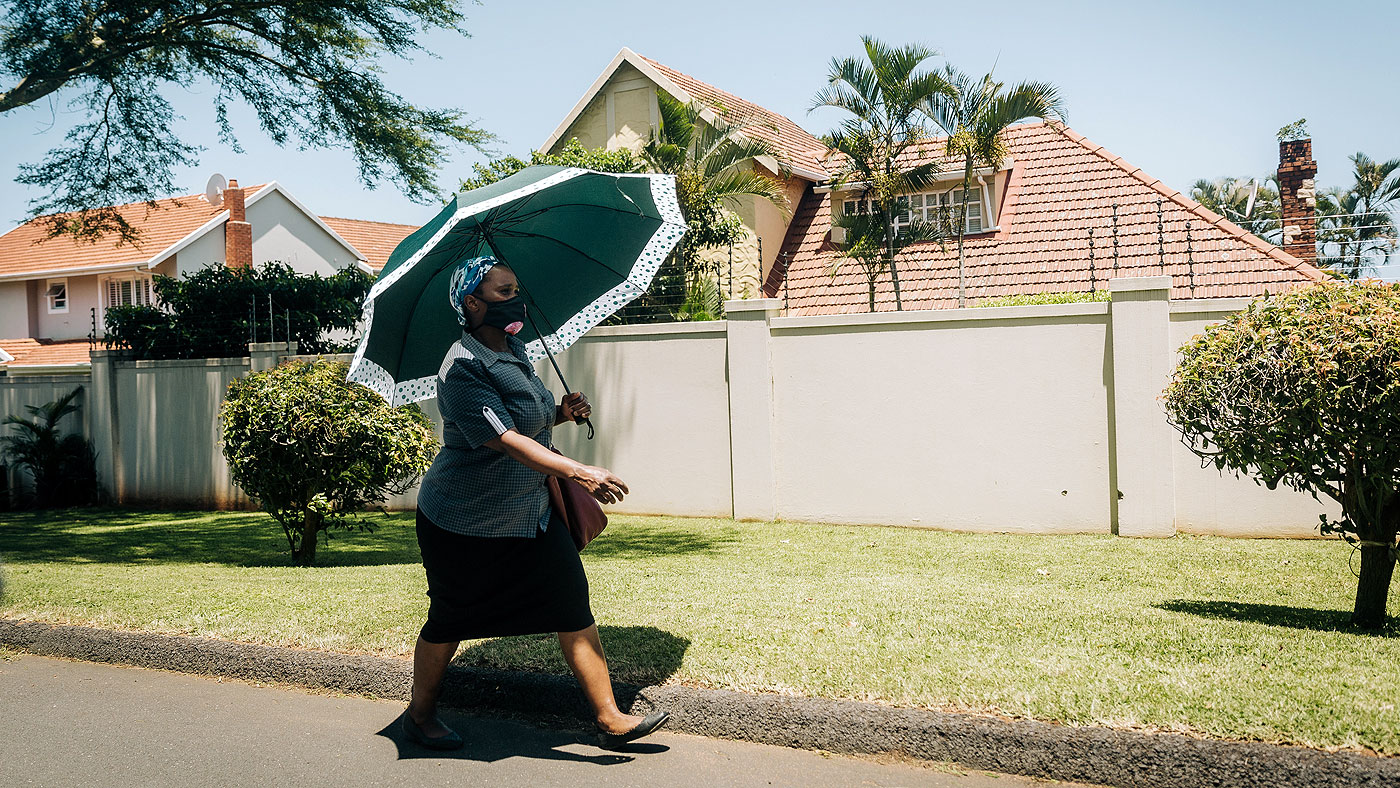Can the South African Covid-19 strain evade vaccines?
Scientists fear new mutation may be less susceptible to existing inoculations

A free daily email with the biggest news stories of the day – and the best features from TheWeek.com
You are now subscribed
Your newsletter sign-up was successful
Pressure is mounting on the government to enforce stronger border controls to stem the arrival of the South African Covid strain in the UK, amid fears that vaccinations may not protect against the new variant.
Gene sequencing has so far uncovered 105 cases of the strain in the UK, 11 of which were not linked to patients who had travelled abroad. Matt Hancock told BBC Radio 4’s Today programme that he was “incredibly worried” about the variant.
However, research suggests that three vaccines that are cleared for use do offer at least some defence against the Covid mutation.
The Week
Escape your echo chamber. Get the facts behind the news, plus analysis from multiple perspectives.

Sign up for The Week's Free Newsletters
From our morning news briefing to a weekly Good News Newsletter, get the best of The Week delivered directly to your inbox.
From our morning news briefing to a weekly Good News Newsletter, get the best of The Week delivered directly to your inbox.
How is it different from other Covid variants?
All viruses mutate as they spread from person to person, but most mutations don’t lead to any substantial changes in the virus. However, the one discovered in South Africa last month had “evolved more than normal”, says The Times. “Even more important, the changes almost all involved the spike protein, improving the virus’s ability to attach to human cells.”
Is it more infectious?
It does seem to be. “Preliminary studies suggest the variant is associated with a higher viral load, which may suggest potential for increased transmissibility,” according to the World Health Organization. The new variant, known as 501.V2, has quickly replaced other mutations in many parts of South Africa, suggesting that it spreads more rapidly than they can.
A free daily email with the biggest news stories of the day – and the best features from TheWeek.com
Is it more deadly?
“At this stage there is no evidence that 501.V2 is associated with higher severity of infection,” says the European Centre for Disease Prevention and Control. Scientists will not be able to give a definitive answer for some time, but hospital admission and mortality rates appear to be similar for all identified variants.
Will the vaccines still work against it?
“Several experts” originally said that vaccines including the Pfizer-BioNTech and Oxford-AstraZeneca jabs may not be able to protect against the new strains, CNBC reported in early January.
But Dr Susan Hopkins of Public Health England has since said that research suggests that three vaccines currently cleared for use provide protection “at a level higher than the minimum standard set by the World Health Organization and the US Food and Drug Administration”, ITV News reports.
“We expect all other vaccines to have a similar level of effectiveness, particularly in reducing hospitalisation and death,” she said.
Trials carried out by Johnson & Johnson showed that its single-shot jab is about 20% to 30% less effective against the South African variant. Further studies are underway.
Holden Frith is The Week’s digital director. He also makes regular appearances on “The Week Unwrapped”, speaking about subjects as diverse as vaccine development and bionic bomb-sniffing locusts. He joined The Week in 2013, spending five years editing the magazine’s website. Before that, he was deputy digital editor at The Sunday Times. He has also been TheTimes.co.uk’s technology editor and the launch editor of Wired magazine’s UK website. Holden has worked in journalism for nearly two decades, having started his professional career while completing an English literature degree at Cambridge University. He followed that with a master’s degree in journalism from Northwestern University in Chicago. A keen photographer, he also writes travel features whenever he gets the chance.
-
 Britain’s ex-Prince Andrew arrested over Epstein ties
Britain’s ex-Prince Andrew arrested over Epstein tiesSpeed Read The younger brother of King Charles III has not yet been charged
-
 Political cartoons for February 20
Political cartoons for February 20Cartoons Friday’s political cartoons include just the ice, winter games, and more
-
 Sepsis ‘breakthrough’: the world’s first targeted treatment?
Sepsis ‘breakthrough’: the world’s first targeted treatment?The Explainer New drug could reverse effects of sepsis, rather than trying to treat infection with antibiotics
-
 A Nipah virus outbreak in India has brought back Covid-era surveillance
A Nipah virus outbreak in India has brought back Covid-era surveillanceUnder the radar The disease can spread through animals and humans
-
 Covid-19 mRNA vaccines could help fight cancer
Covid-19 mRNA vaccines could help fight cancerUnder the radar They boost the immune system
-
 The new Stratus Covid strain – and why it’s on the rise
The new Stratus Covid strain – and why it’s on the riseThe Explainer ‘No evidence’ new variant is more dangerous or that vaccines won’t work against it, say UK health experts
-
 RFK Jr. vaccine panel advises restricting MMRV shot
RFK Jr. vaccine panel advises restricting MMRV shotSpeed Read The committee voted to restrict access to a childhood vaccine against chickenpox
-
 RFK Jr. scraps Covid shots for pregnant women, kids
RFK Jr. scraps Covid shots for pregnant women, kidsSpeed Read The Health Secretary announced a policy change without informing CDC officials
-
 New FDA chiefs limit Covid-19 shots to elderly, sick
New FDA chiefs limit Covid-19 shots to elderly, sickspeed read The FDA set stricter approval standards for booster shots
-
 RFK Jr.: A new plan for sabotaging vaccines
RFK Jr.: A new plan for sabotaging vaccinesFeature The Health Secretary announced changes to vaccine testing and asks Americans to 'do your own research'
-
 Five years on: How Covid changed everything
Five years on: How Covid changed everythingFeature We seem to have collectively forgotten Covid’s horrors, but they have completely reshaped politics